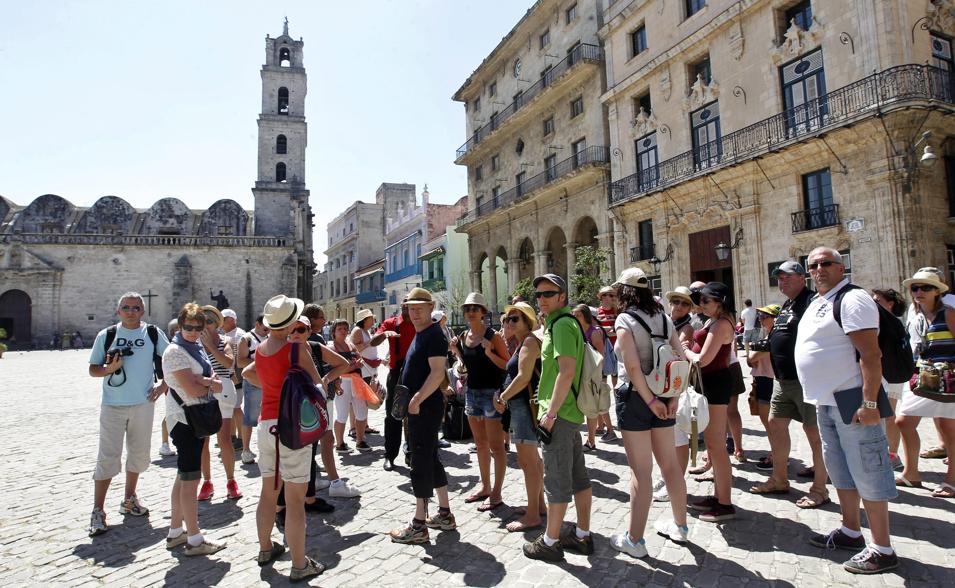
MEXICO CITY — They have gone to Cuba with plans to build houses. To assemble tractors. To buy apps from young programmers. Even to import charcoal made from the sicklebush that grows in vast stretches across the island.
But 15 months after US entrepreneurs began swarming Havana, filling hotels and hiring consultants, only a handful have signed deals to do business with the once-forbidden island.
As President Obama prepares to visit Cuba this month, the lack of trade with the former foe threatens to sap momentum from the process of building relations. It is also a reminder that beyond tourism — which satisfies Cuba’s need for foreign currency and the desire of Americans to visit the island — the countries have very different visions of economic engagement.
“The litmus test of normalization is trade and investment,’’ said Robert Muse, a Washington lawyer who specializes in Cuba-related law. “That’s how the Obama legacy will be judged.’’
Eager to show results, the administration in late January made the biggest breach yet in the embargo by permitting Americans to trade with state-owned companies, which control much of Cuba’s commerce and are run, mostly, by the military.
The new regulations mean that exporters can apply for a license to sell goods to state entities in sectors that include education, food processing, and infrastructure, making them “the most significant’’ change since Obama announced a thaw with Cuba in December 2014, said Stephen Propst, a partner at the Hogan Lovells law firm in Washington.
The move was a concession to reality: Efforts at opening commerce had, until then, targeted everyday Cubans. But with the island’s trade apparatus controlled by the state, trying to sell American cement to Cuban homeowners or stoves to privately owned restaurants is impractical and of little interest to the Cuban government.
Cuba has made it clear that it will not alter the way it does business to suit US needs. A stinging editorial published Wednesday in Granma, the official Communist Party organ, said that Obama could do even more to ease trade and that, for Cuba, “getting along does not mean having to give up our beliefs.’’
Cuban officials are “overwhelmed’’ by the number of US delegations, said Philip Peters, a partner at D17 Strategies, a consultancy in Washington, who travels frequently to Cuba. And, he said, they are “not going to rewrite the rule book’’ for US entrepreneurs.
That rule book is restrictive. Foreigners are barred from buying most property in Cuba, so they can only covet the beautiful, crumbling mansions of downtown Havana.
The Cuban government usually insists on holding a majority stake in any joint venture outside the new development zone at the port of Mariel, near Havana, where foreign companies can wholly own ventures and receive a 10-year tax holiday. State-owned companies often seek up to a year to pay for goods, not the usual 90 days.
Still, some US businesses have prospered. Airbnb began operating in Cuba in April; Sprint now has a roaming agreement with the Cuban state telecommunications company, Etecsa. Cleber, an Alabama company, received a license in February from the Treasury Department — and has an agreement with the Cuban government — to assemble tractors in Cuba to sell to private farmers and cooperatives. Florida Produce, a grocer in Tampa, Fla., has a license from the Treasury to open a distribution warehouse in Cuba and is in talks with the Cuban authorities.
But threading the needle between Cuba’s rigid rules and the restrictions that the United States continue to impose is tricky.
John S. Kavulich, president of the US-Cuba Trade and Economic Council, said he had counted about 500 visits to Cuba by American businesspeople since December 2014 and more than 70 visits by US representatives and officials. But, he said, he could count the number of business deals they had reached on his fingers.
In interviews, US entrepreneurs, business lawyers, and consultants described a culture gap that often seems the size of the Florida Straits, with Americans expecting swift decisions and baffled by the time and meetings required to get answers from Cuban officials.
Some worry about the lack of freedoms in Cuba. Carlos Medina, head of the Statewide Hispanic Chamber of Commerce of New Jersey, visited Cuba as part of a business delegation in April.
He was dismayed by the “slow movement toward change’’ and would not recommend investing there.
Internet access, for example, has improved only marginally over the past year, and political oppression continues, said Medina, an engineer Business cannot thrive in “this controlled environment,’’ he said.



